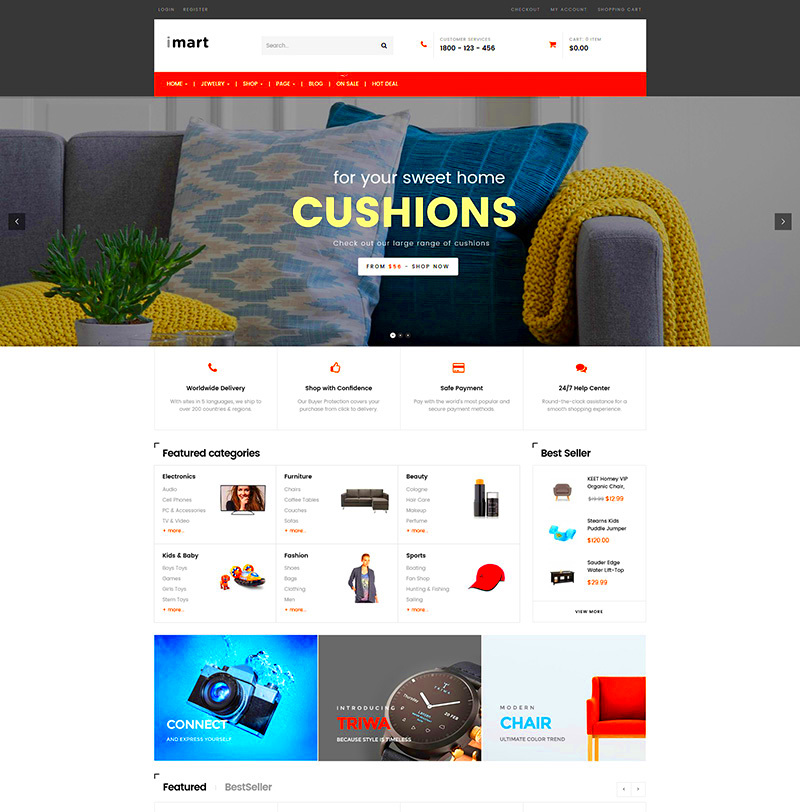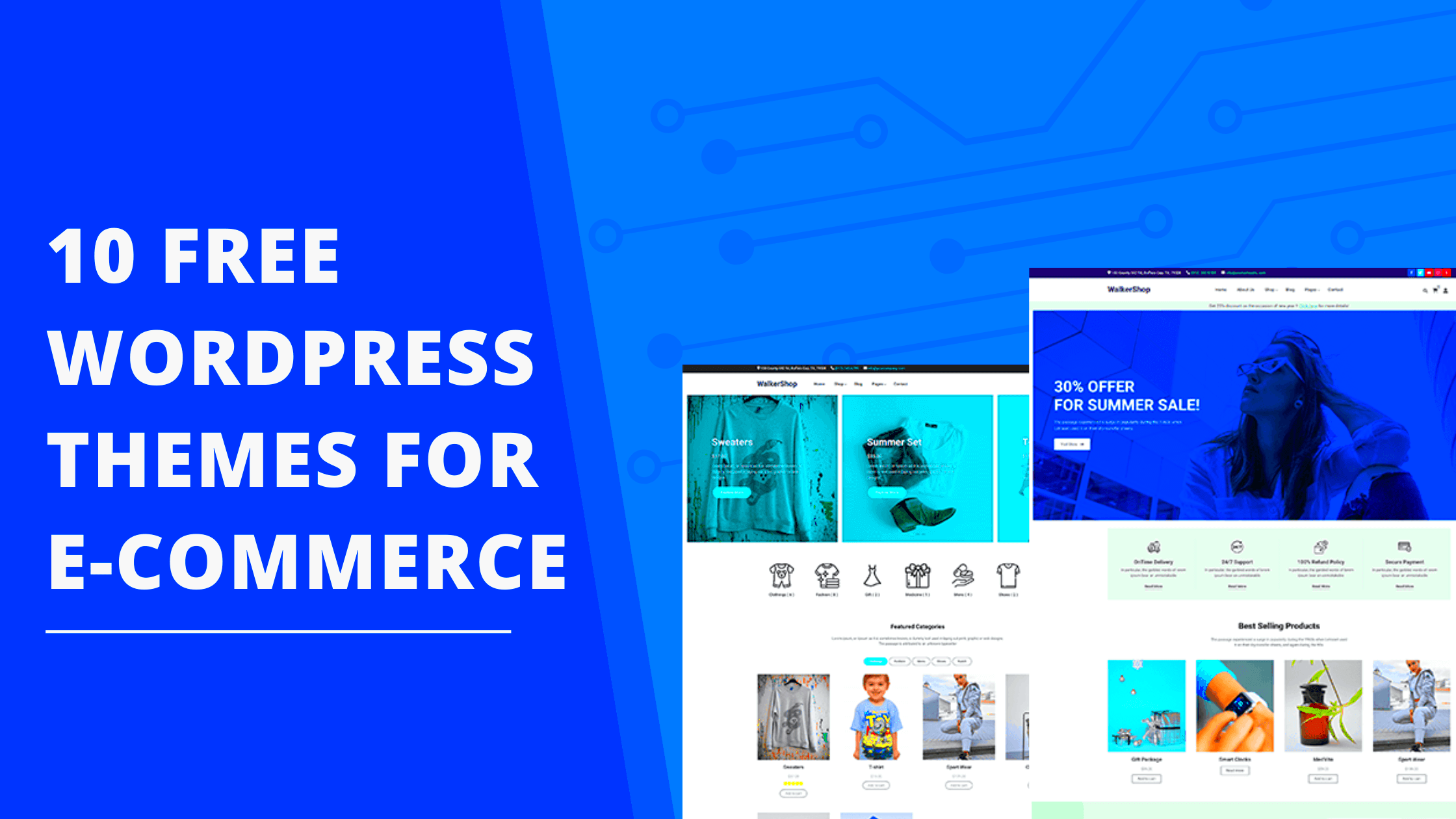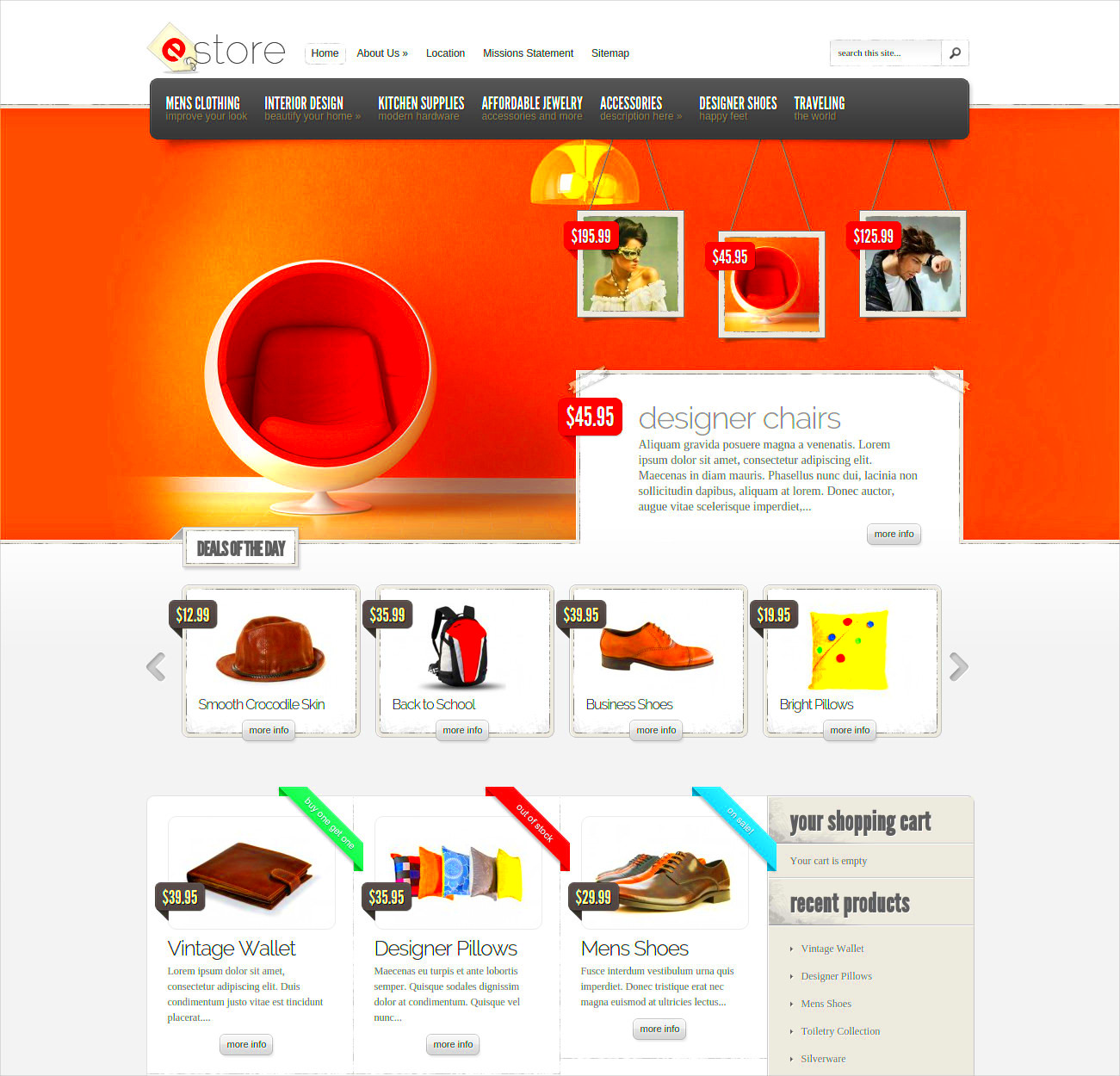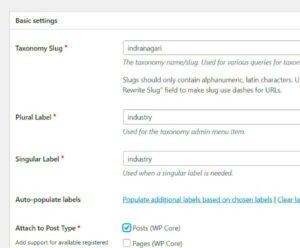If you’re looking to start an online store, you might be wondering if WordPress themes are the right fit for e-commerce. Well, the short answer is yes! WordPress offers a plethora of themes designed specifically for e-commerce that not only look great but also provide the functionalities you need to run a successful online business. From customizable layouts to integrated payment gateways, these themes are optimized to enhance user experience and drive sales. Let’s dive deeper into what makes
Understanding E-commerce Needs

Before diving into WordPress themes, it’s crucial to understand what e-commerce truly entails. Unlike a regular blog or portfolio site, an e-commerce site has specific requirements to ensure smooth operations. Here are some essential aspects you need to consider:
- Product Management: Efficiently listing, categorizing, and managing your products is vital. Look for themes that support various product types.
- Payment Gateway Integration: Your theme should seamlessly integrate with popular payment systems like PayPal, Stripe, and others. The easier it is to check out, the better!
- User-Friendly Navigation: Experience matters! A clear, straightforward navigation structure helps customers find what they need quickly.
- Responsive Design: With many shoppers using mobile devices, a mobile-responsive theme is essential for capturing sales on-the-go.
- SEO Optimization: A theme that supports SEO practices can significantly boost your visibility on search engines, driving more traffic to your store.
By understanding these needs, you can choose a WordPress theme that not only meets your aesthetic preferences but also ensures your e-commerce site runs smoothly and effectively. The right theme can pave the way for a thriving online business, helping you capture the ever-growing e-commerce market.
3. Advantages of Using WordPress Themes for E-commerce

When it comes to setting up an e-commerce site, the choice of theme is crucial. One of the standout options is using WordPress themes tailored for e-commerce. Here’s why they might just be the perfect fit for your online shop:
- User-Friendly Interface: WordPress themes are designed with simplicity in mind. They offer intuitive navigation, making it easier for customers to browse and shop without any hassle.
- SEO Optimized: Many WordPress e-commerce themes come with built-in SEO features. This can significantly boost your visibility on search engines, driving more traffic to your site.
- Mobile Responsiveness: With the increase in mobile shopping, having a mobile-friendly theme is non-negotiable. Most modern WordPress themes automatically adjust to various screen sizes, providing a seamless experience across devices.
- Customizability: WordPress themes are highly customizable. You can easily adjust colors, fonts, layouts, and more, allowing your website to reflect your brand identity perfectly.
- Integration with Popular Plugins: Themes designed for e-commerce usually work well with various plugins. From payment gateways to inventory management, these integrations make running your store smoother.
- Regular Updates and Support: Reliable WordPress themes often come with ongoing updates and support. This ensures that your site remains secure and up-to-date with the latest features.
In essence, choosing the right WordPress theme for your e-commerce store can streamline your operations and enhance customer engagement.
4. Popular WordPress Themes for E-commerce

Now that we’ve talked about the benefits of using WordPress themes for e-commerce, let’s dive into some of the most popular ones available. Each of these themes offers unique features tailored to different business needs:
| Theme Name | Key Features | Best For |
|---|---|---|
| Astra | Lightweight, customizable, compatibility with major page builders. | Small to medium-sized online stores. |
| OceanWP | Responsive design, built-in SEO, e-commerce focused demo sites. | All types of online shops. |
| Divi | Visual builder, drag-and-drop features, extensive modules. | Users who want complete design control. |
| Flatsome | Responsive, built-in ecommerce elements, customization options. | Fashion and lifestyle stores. |
| Shopify | Pre-built layouts, strong support for product pages, easy to use. | Retailers looking for quick setups. |
Each theme offers its own set of strengths, tailored to various business models. Whether you’re starting a boutique clothing store or selling digital products, there’s a WordPress theme perfect for your needs!
Essential Features to Look for in E-commerce Themes

When diving into the world of e-commerce, choosing the right WordPress theme is crucial. Not all themes are designed to handle the myriad functionalities an online store requires. Here are some essential features you should be on the lookout for:
- Responsiveness: In today’s mobile-driven world, your theme must be responsive, meaning it should adapt seamlessly to screens of all sizes. A responsive design ensures that your customers get a consistent experience whether they’re on their phones, tablets, or desktops.
- Compatibility with Page Builders: Many users prefer drag-and-drop functionality for ease of use. Themes that are compatible with popular page builders like Elementor or WPBakery allow you to design your store intuitively without any coding knowledge.
- Integration with E-commerce Plugins: Themes need to play well with popular e-commerce plugins, primarily WooCommerce. Ensure that your chosen theme supports WooCommerce features like product catalogs, shopping carts, and user account management.
- SEO Optimization: An SEO-friendly theme helps your online store rank better in search engine results. Look for themes that come with built-in SEO functionalities, like optimized HTML markup and fast loading times.
- Customizable Product Pages: The ability to customize product pages allows you to showcase your offerings effectively. Features such as zoom functionality, image sliders, and product reviews can enhance user experience.
- High-Quality Support: Choose a theme backed by reliable developer support. Good support can be a lifesaver when you face technical issues or need help with customizations.
Customization and Flexibility of WordPress Themes
One of the standout features of using WordPress for your e-commerce site is the ability to customize and tweak themes to suit your unique brand. Whether you’re a small business or a rapidly growing enterprise, customization is key to creating a tailored shopping experience. Let’s dive into the nitty-gritty of what makes WordPress themes flexible:
- Theme Customizer: Most WordPress themes come with an integrated customizer. This user-friendly tool allows you to change colors, fonts, layouts, and more—without touching a single line of code. It often provides live previews, so you can see how changes affect your site in real-time.
- Widget Areas: Many WordPress themes support multiple widget areas. This means you can easily add features like promotional banners, social media icons, or featured products in various sections of your website without cumbersome coding.
- Custom Shortcodes: Shortcodes are codes that offer predefined functionality. With themes that support custom shortcodes, you can add buttons, galleries, and other elements easily, keeping your pages visually appealing and interactive.
- Child Themes: Want to make deep changes? Using a child theme allows you to customize your site without losing your changes during future theme updates. This is an essential practice for any serious e-commerce operator.
- Third-Party Integrations: Flexibility is also about compatibility. Many WordPress themes allow integration with numerous third-party apps and services, from email marketing tools to payment gateways, enabling you to expand your business functionalities.
Overall, the customization and flexibility of WordPress themes play a vital role in creating a tailored e-commerce experience, allowing businesses to stand out in a crowded marketplace.
Comparing WordPress Themes with Other E-commerce Platforms
When it comes to choosing a platform for your online store, there are several options available, and WordPress is often at the top of the list. But how does it stack up against other dedicated e-commerce platforms like Shopify, Magento, or BigCommerce? Let’s break it down.
First off, WordPress combined with WooCommerce offers remarkable flexibility. You get a plethora of themes to choose from, which can be customized to fit your brand’s unique style. This is something that many other platforms might lack; their themes can sometimes feel a bit rigid.
- Ease of Use: Many users find WordPress’s interface straightforward. Themes can be installed, adjusted, and integrated fairly easily, even for those less tech-savvy.
- Cost-Effectiveness: WordPress itself is free, although premium themes and plugins can incur costs. In contrast, platforms like Shopify require ongoing subscription fees.
- Variety: WordPress offers thousands of themes and plugins, allowing for an endless array of customization options that can make your online store stand out.
On the flip side, dedicated platforms often have some built-in advantages:
- Simplicity: E-commerce platforms like Shopify are designed specifically for selling online, which means everything is streamlined.
- Security: They often handle security and compliance for you, a considerable advantage for those not so well-versed in online security.
- Support: Many dedicated e-commerce platforms come with robust customer support, often unmatched by the community-based support of free WordPress themes.
In summary, both WordPress themes and dedicated e-commerce platforms have their own strengths. Your choice will depend on your particular business needs, budget, and technical know-how.
SEO and Performance Considerations
Search Engine Optimization (SEO) and site performance are crucial elements for any online store looking to gain visibility and provide a seamless shopping experience. Using WordPress themes for e-commerce can have its pros and cons in these areas, so let’s dive into it.
One of the biggest advantages of WordPress is its SEO-friendliness. Here’s why:
- SEO Plugins: Tools like Yoast SEO or All in One SEO Pack allow users to optimize their content for search engines easily. You can add meta tags, focus keywords, and generate sitemaps with just a few clicks.
- Customizable URL Structures: WordPress allows you to create SEO-friendly URLs, which can significantly improve your visibility in search results.
- Fast Loading Times: Many WordPress themes are optimized for speed, which is a vital ranking factor for Google, and enhances user experience.
However, there are some considerations to address:
- Theme Quality: Not all WordPress themes are created equal. Some might be poorly coded, which can lead to slow load times or other issues affecting your site’s performance.
- Plugin Overload: While plugins are great for adding functionality, having too many of them can slow your site down and even hurt your SEO ranking.
- Mobile Optimization: Ensure that your chosen theme is fully responsive. Google uses mobile-first indexing, so a non-mobile-friendly site can hinder your rankings.
In summary, while WordPress themes can be a fantastic option for e-commerce in terms of SEO and performance, it’s crucial to choose wisely. Aim for well-coded themes and optimize your site regularly to ensure the best results.
9. Common Pitfalls When Using WordPress Themes for E-commerce
When diving into the world of e-commerce on WordPress, there are a few hiccups you might encounter with themes. It’s essential to be aware of these common pitfalls so you can navigate them smoothly and set your store up for success.
- Limited Customization: Some themes come with rigid structures, offering minimal room for changes. You might find yourself wishing you could adjust layout features or color schemes that don’t quite match your brand’s identity.
- Slow Loading Times: Not all themes are optimized for speed. A bloated theme with too many features can slow your site down, leading to frustrated customers who might abandon their carts.
- Compatibility Issues: Plugins are the lifeblood of many e-commerce stores. If your theme doesn’t play well with popular plugins, you could face functionality issues that disrupt the shopping experience.
- Poor Mobile Optimization: With so many customers shopping on mobile devices, it’s crucial to choose a theme that looks good on phones and tablets. A theme that’s not mobile-friendly could turn potential buyers away.
- Outdated Design: Trends in website design change rapidly. An outdated theme can make your store look untrustworthy and less professional, potentially putting off customers.
- Security Risks: Some free themes may not receive regular updates, making them vulnerable to security breaches. This can put your store’s data—along with customer information—at risk.
By keeping these pitfalls in mind, you can choose a WordPress theme that truly fits your e-commerce needs, ensuring a smooth and successful online business experience.
10. Conclusion: Is a WordPress Theme Right for Your E-commerce Store?
So, now that we’ve gone through the ins and outs of using WordPress themes for e-commerce, you might be wondering: Is it the right choice for you? The answer largely depends on your specific needs and preferences.
Consider the following:
- Your Technical Skills: If you’re technically inclined, customizing a WordPress theme could be a breeze. However, if you prefer a more straightforward setup, look for user-friendly themes that require minimal tweaking.
- Your Business Model: Depending on whether you’re selling physical products, digital downloads, or services, certain WordPress themes might cater better to your specific business model.
- Your Budget: WordPress themes come at various price points. Free themes are tempting, but investing in a premium theme often translates to better support and features.
Ultimately, a WordPress theme can be a perfect fit for your e-commerce store if you choose wisely and keep your particular circumstances in mind. With the right approach, you can build a visually appealing and highly functional online shop that meets both your needs and those of your customers!



